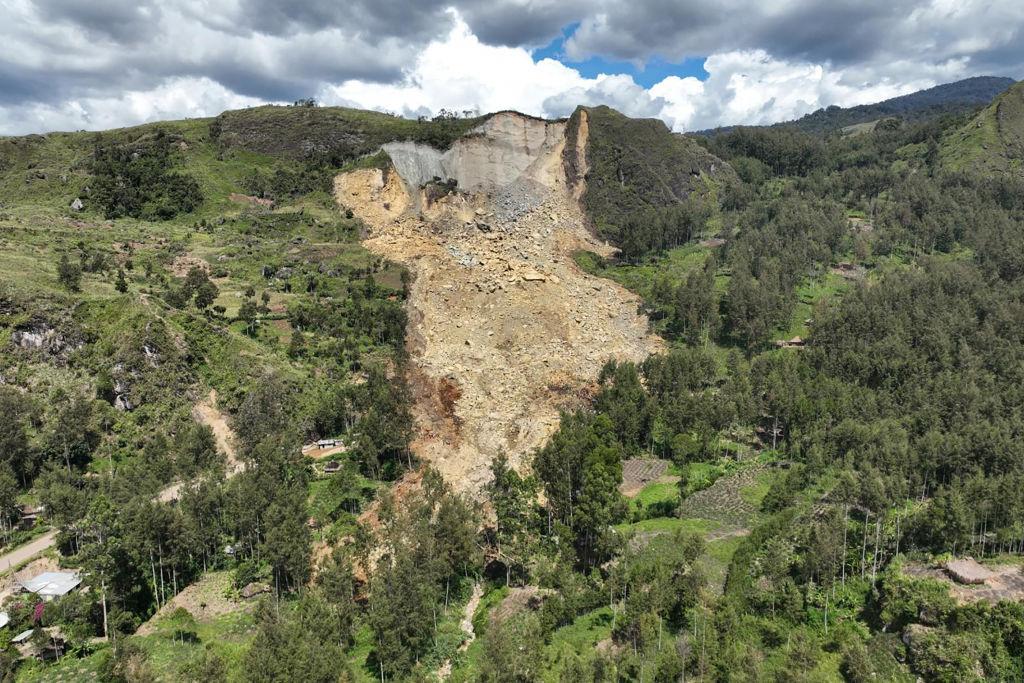Little progress is being made in recovering bodies from a huge landslide that has engulfed villages in the remote Enga province of Papua New Guinea.
Efforts to recover bodies are being hampered by smaller landslides that continue to occur.

Little progress is being made in recovering bodies from a huge landslide that has engulfed villages in the remote Enga province of Papua New Guinea.
Efforts to recover bodies are being hampered by smaller landslides that continue to occur.